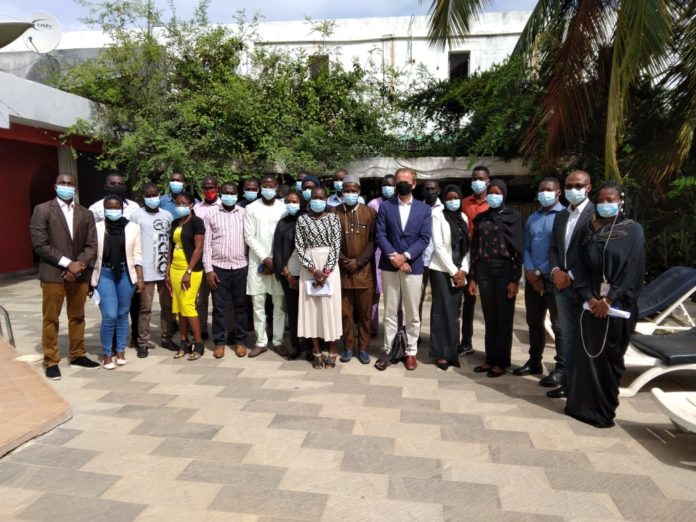By Fatou Camara II
At least 30 Gambian journalists have been participating in a Unesco-funded programme designed to hone their skills on fact-checking and debunking fake news particularly from politicians ahead of the December election.
The training is aimed and designed to better equip journalist on ways to battle unfactual information. It’s stands to empower the media with tools, resources and skills to counter the phenomenon of disinformation and misinformation.
The UN Peace and Development Advisor in The Gambia Patrick McCarthy represented the Resident Coordinator of the UN system in The Gambia, Ms. Seraphine Wakana, as well as the Director of the UNESCO Regional Office for West Africa (Sahel), Dr Dimitri SANGA at the opening of the training.
Mr Patrick stressed the need to empower the media with tools, resources and skills neccesary to stand firm against fake news particularly heading to the upcoming presidential election.
“As The Gambia prepares to head to polls on 4th December for the presidential election, it is critical to empower the media with tools, resources and skills to counter the phenomenon of disinformation and misinformation,” he said.
He added “Elections constitute a key moment in the political life of a country as they allow citizens to express their choices and designate the political representatives who will determine important aspects of the present and future of their countries.”
“However, in as much as elections create avenues for citizens of a country to exercise its civic right, election periods are also a time where so called fake news can proliferate, with the aim of misleading the public and propagating false information. In times like this, facts can be a matter of life and death. Therefore, the need for effective fact-checking and verification of information cannot be overstated.”
Appreciating the efforts of UNESCO on behalf of GPU is it’s Vice President Muhammed Bah. Bah commended UNESCO for their efforts thus addressed journalist by emphasizing the undisputed importance of fact-checking in journalism more so with politicians considering the upcoming elections .
“Fact-checking is a part of everyday journalism, but it is even more important that this culture of verification is entrenched during elections. Misinformation and disinformation (or fake news) comes in many forms, and it is important for journalists to identify and debunk them,” he said.




